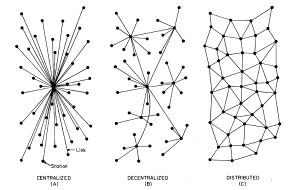We are still actively working on the spam issue.
Difference between revisions of "Bitmessage"
m (minor fixes) |
m (minor addition) |
||
| Line 19: | Line 19: | ||
==External links== | ==External links== | ||
* [https://bitmessage.org/wiki/Main_Page Official website] | * [https://bitmessage.org/wiki/Main_Page Official website] | ||
| + | * [https://en.wikipedia.org/wiki/Bitmessage Wikipedia page] | ||
Latest revision as of 05:18, 16 November 2020
Bitmessage is a encrypted, peer-to-peer, trustless communications protocol that can be used by one person to send encrypted messages to another person, or to multiple subscribers.
In June 2013, the software experienced a surge of new adoptions after news reports of email surveillance by the US National Security Agency.
Bitmessage was conceived by software developer Jonathan Warren, who based its design on the decentralized digital currency, Bitcoin. The software was released in November 2012 under the MIT license.
Bitmessage gained a reputation for being out of reach of warrantless wiretapping conducted by the National Security Agency (NSA), due to the decentralized nature of the protocol, and its encryption being difficult to crack. As a result, downloads of the Bitmessage program increased fivefold during June 2013, after news broke of classified email surveillance activities conducted by the NSA.
Bitmessage has also been mentioned as an experimental alternative to email by Popular Science and CNET.
Some ransomware programs instruct affected users to use Bitmessage to communicate with the attackers.
Further reading
- Bitmessage: A Peer‐to‐Peer Message Authentication and Delivery System (Jonathan Warren) - Bitmessage white paper
